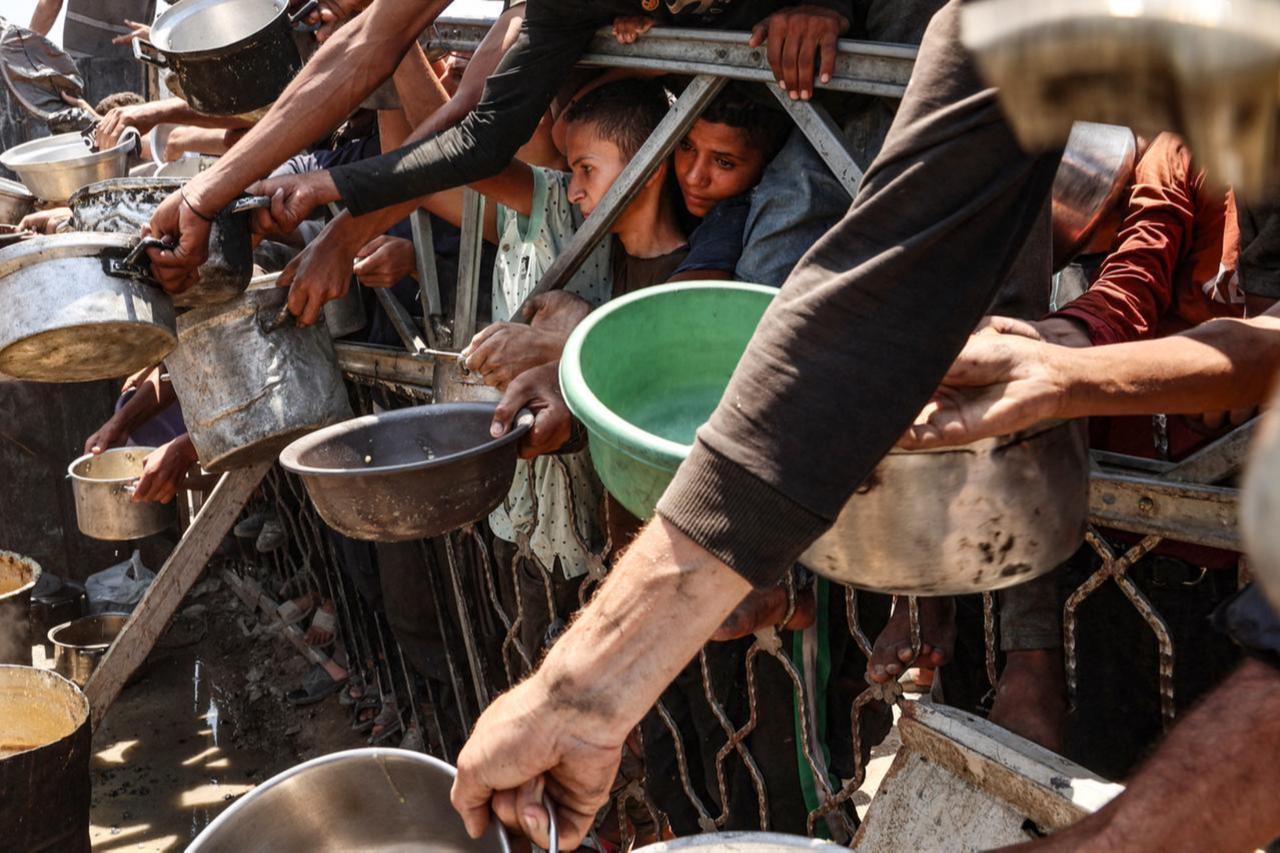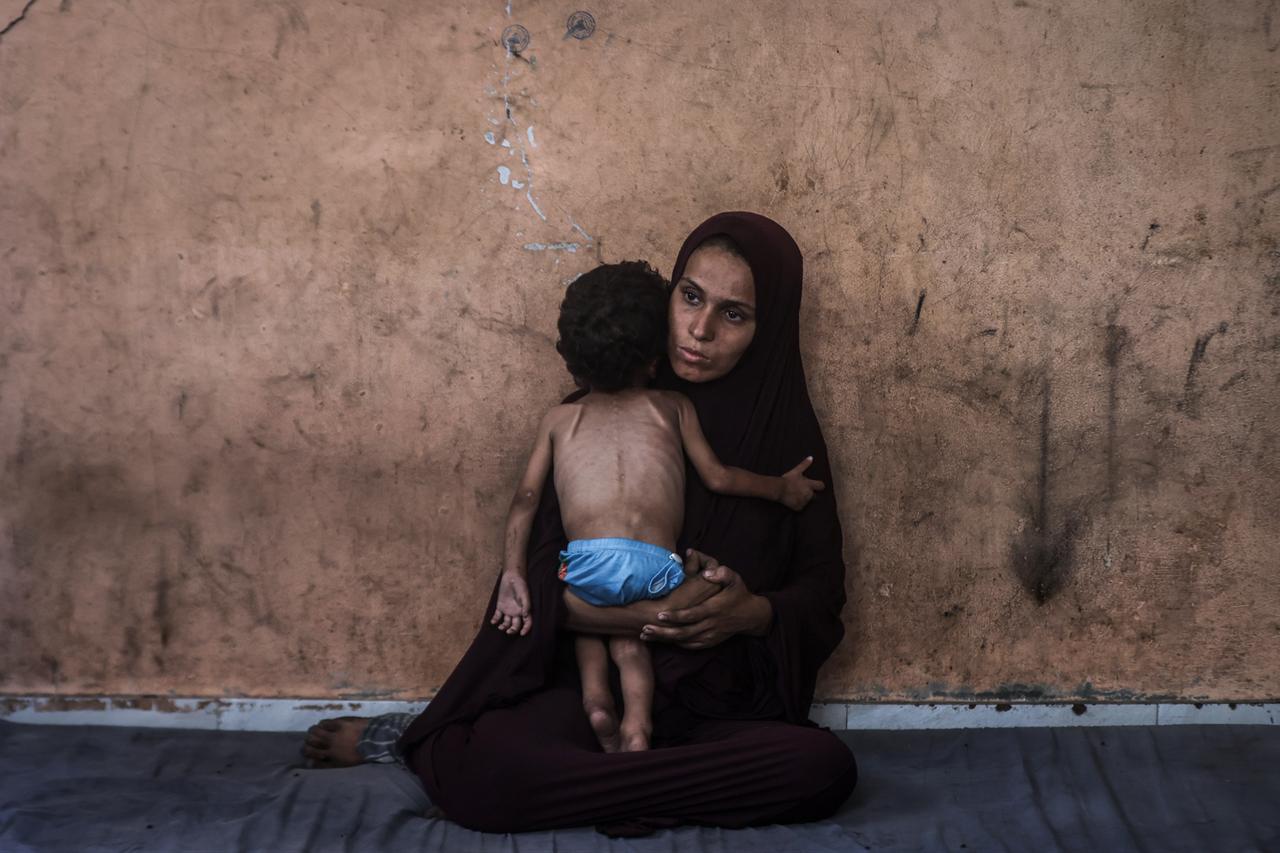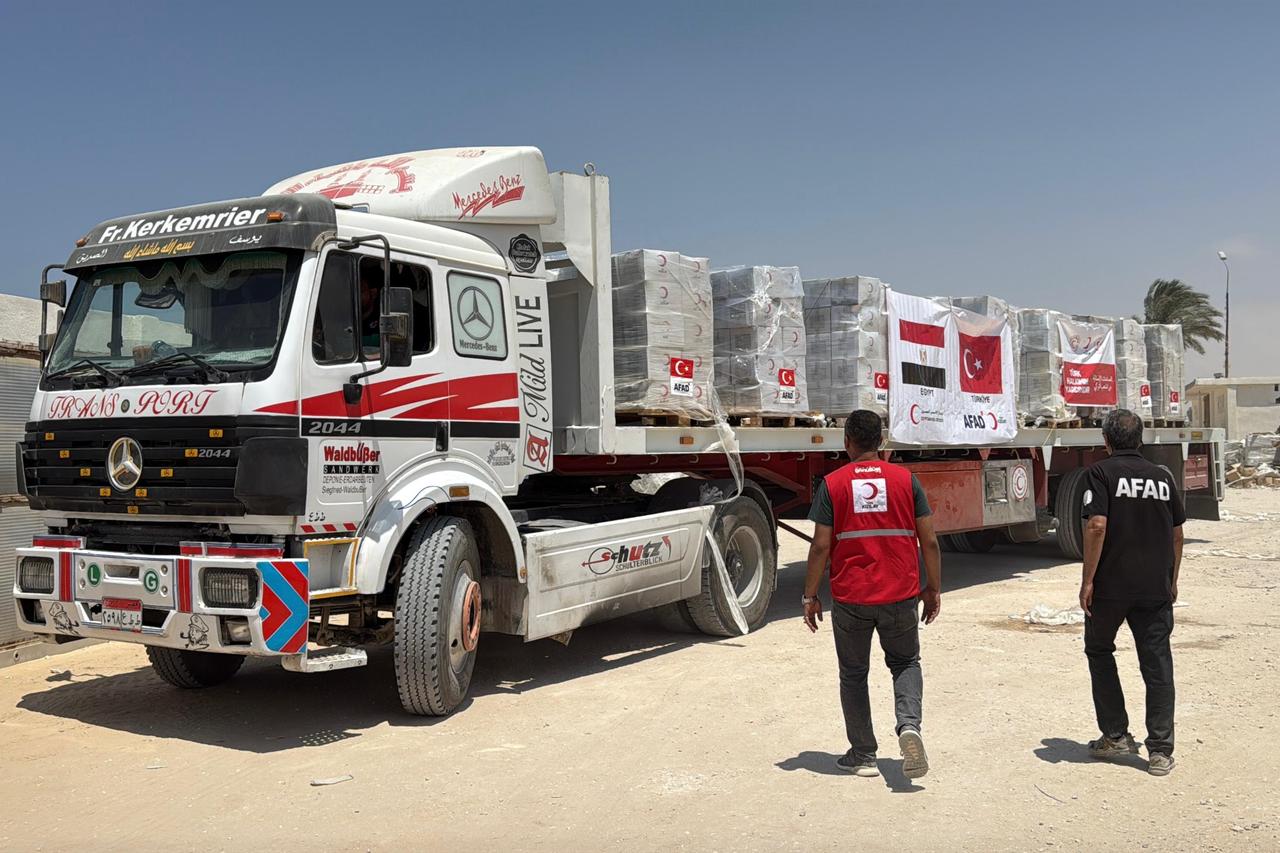
Malnutrition-related deaths in the Gaza Strip have become “a routine occurrence” amid Israel’s ongoing blockade and military operations, U.N. spokesperson Stephane Dujarric said Wednesday.
Speaking at the daily press briefing in New York, Dujarric cited Gaza Health Ministry data showing that eight people—including three children—died in the past 24 hours from malnutrition and hunger.
“Such reports have become a routine occurrence, reflecting the deepening humanitarian crisis and the urgent need for sustained aid,” he said.
So far in 2025, more than 340 children have been brought to Gaza treatment centers for malnutrition, with 49 children—39 of them under 5—dying from hunger as of Aug. 5, he added.
Dujarric noted that poor sanitation and lack of clean water persist in southern Gaza, with an Israeli-supplied water pipeline damaged for about a week.
“The amount of aid and goods entering Gaza does not meet the minimum needs of people facing hunger,” he warned, stressing the need for a ceasefire and continuous aid flow.

Two U.N. special rapporteurs accused Israel of carrying out a “medical massacre” in Gaza by deliberately targeting health care facilities, workers, and patients.
Francesca Albanese, U.N. special rapporteur on the situation of human rights in the Palestinian territories, and Tlaleng Mofokeng, special rapporteur on the right to health, said in a joint statement that Israel’s destruction of Gaza’s health system amounts to war crimes and forms part of “ongoing genocide.”
They noted that the World Health Organization recorded 735 attacks on healthcare in Gaza between Oct. 7, 2023, and June 11, 2025, killing 917 people, injuring 1,411, and damaging 125 facilities, including 34 hospitals.

The rapporteurs said the international community has a moral obligation to stop the killing and ensure Palestinians in Gaza can live free from “permanent occupation and apartheid.” They urged an immediate cease-fire as the first step toward holding Israel accountable and saving what remains of Gaza’s health system.
Special rapporteurs are independent human rights experts appointed by the U.N. Human Rights Council to monitor and report on specific issues. They work voluntarily and are not U.N. staff members.